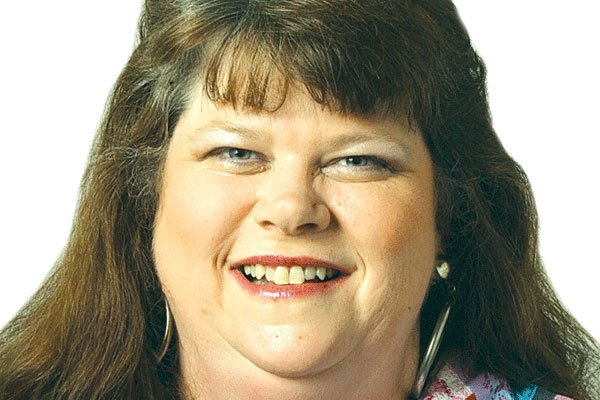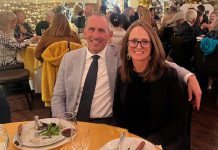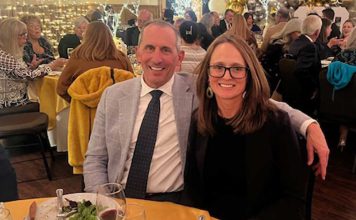Several decades ago, Dina Joya’s family of four paid $50,000 and
left behind everything they owned in order to get out of war-torn
Afghanistan. Their guide dressed up like a member of the Taliban to
help cover up their escape.
Several decades ago, Dina Joya’s family of four paid $50,000 and left behind everything they owned in order to get out of war-torn Afghanistan. Their guide dressed up like a member of the Taliban to help cover up their escape.
In the first year after leaving, she said she and her sister cried every day.
“Losing your country is like losing everything you have,” Joya said.
Before she was forced to leave everything behind as a teenager in the early 1980’s in Afghanistan, Joya was happy with her life in Kabul. The one subject she admitted to not enjoying in school in Afghanistan was English.
“I said, why do we have to learn this? We’re never going to use it!” she said.
But when Russian soldiers in tanks rolled into the streets, and airplanes blared overhead non-stop for weeks, she was grateful she had. Just in her teens, she and her family took off for America, where her family had to start from the bottom.
“I always had high expectations for myself,” she said. “I worked hard and attended college.”
Today, Joya is a successful businesswoman and mother. Her son plans to become an an orthodontist like his grandfather was in Afghanistan.
Joya addressed the South Valley Unitarian Fellowship earlier this month in their upstairs meeting space in downtown Gilroy’s historic Old City Hall. The group of 20 or so members invited the young Afghan woman to talk about life from an Afghan woman’s point of view. She was just one of the many speakers invited to address the small Fellowship throughout the past year.
The Fellowship is the most progressive, open-minded, intellectual, and inclusive group of people I have encountered so far in south Santa Clara County. They have invited various guest speakers who have covered a wide range of topics, including racism, Eleanor Roosevelt, technology traps, and a study of the Universal Declaration of Human Rights.
The group prides itself on the diversity of its members.
“We have to get united – that’s why we are on earth,” Joya said.
Unitarian Roy Guist, a retired NASA wind tunnel scientist, gave a presentation nuclear proliferation. Leo Moser, an expert on foreign affairs who is currently composing his own new universal language, led the group in learning about what to expect of China in the 21st century.
The Fellowship participates in many educational and social justice efforts that benefit Morgan Hill and Gilroy. One of the causes that is near and dear to their hearts is their annual scholarship drive for returning college students.
In 2009, the fellowship gave three $750 scholarships to students in Gavilan College’s nursing program.
Currently, the group is gearing up to create Christmas for families who would otherwise not be able to afford gifts like toys and clothing. Local nonprofit Community Solutions matches them up with a family.
“It’s a lot of fun,” Eileen Barrett said, who is helping organize the effort. “We get a list of the children’s ages and what they need. We try to fulfill all of their wishes. You should see the collection area where the gifts are gathered. Last year – my word – they had dozens and dozens of bikes.
The Fellowship had humble beginnings, meeting outdoors in Morgan Hill.
“It was just a couple of people. We sat on picnic benches at Machado School and just talked,” Betty Lepper said. “I wasn’t looking for any kind of formal religious meeting.”
That was 15 years ago, and they’ve been meeting ever since. The Fellowship does not have any official pastor, and they keep overhead low by renting space for Sunday mornings only. They’d rather use their resources for worthy causes.
Just before Joya’s presentation, landlord Joe Walton stopped by to give the Unitarians the good news that the Old City Hall building is now going to be their permanent meeting place. They were very pleased to learn that he will keep the rent at the same low rate it had been most recently when they were meeting in the old post office building.
“We are always interested in exploring other religions and cultures,” Natasha Silberstein said.
She and her husband, Otto Silberstein, serve as contacts for those who want to know more about the group.
“We have inquiring minds,” she said. “We want to reach out.”
Maybe one reason it is so important to the group to be inclusive and tolerant of other points of view is because their founding members experienced firsthand the terrible price of intolerance.
“My parents escaped the Russian Revolution and eventually settled in Czechoslovakia,” Natasha Silberstein said. “I came to America in 1938, in September, a week before Hitler invaded Czechoslovakia.”
Otto Silberstein was born in Austria and came to America in 1939. He is a survivor of the Dachau concentration camp.
In Gilroy, Natasha Silberstein taught English as a second language.
“That’s why they say that so many farm workers in Gilroy speak with a Russian accent,” she joked.
The differences in the group are what draws them together, she said. And that’s a characteristic the group would like to share.
“As we go out into the world, let us not fear difference,” Natasha Silberstein said. “Let us work for a world of acceptance, love and community for every person.”
For more information about the South Valley Unitarian Fellowship, call 847-3870.












